- Let's try something else, such as education.
Click for AUDIO VERSION.
To use this segment in a Radio broadcast or Podcast, send TIM a request.
 Last Sunday (Nov 25th) a group from the "Caravan," a group of Central American migrants marching to the U.S. border, breached the border and tried to elude Homeland Security officers. In the process, some hurled rocks and bottles at U.S. officials who, in turn, shot tear gas at the crowd to break it up. No lethal force was used and about 50 people were apprehended after illegally crossing the border. All will likely be deported.
Last Sunday (Nov 25th) a group from the "Caravan," a group of Central American migrants marching to the U.S. border, breached the border and tried to elude Homeland Security officers. In the process, some hurled rocks and bottles at U.S. officials who, in turn, shot tear gas at the crowd to break it up. No lethal force was used and about 50 people were apprehended after illegally crossing the border. All will likely be deported.
Conservatives see the "Caravan" as a legitimate invasion of our sovereignty, and they support President Trump's deployment of military personnel along the border to prevent this from happening. They are also in favor of closing the Mexican border should the Caravan persist in trying to enter the country illegally. Liberals, on the other hand, portray the members of the Caravan as sympathetic characters who are destitute and deserve help. It is easy to sympathize with such people, but when they wave their own flag during their march, it is obvious their loyalty is with their homeland and are only interested in the economic benefits the United States has to offer, such as medical care, education, shelter, and food.
The difference between Left and Right here is whether it is necessary to follow "due process" in entering the United States. Whereas Conservatives are inclined to follow the rule of law, the Liberals want the borders opened for anyone to enter. Again, such a policy would threaten our sovereignty and ultimately bankrupt the country trying to pay for a massive influx of immigrants.
Let's be clear about this, we cannot possibly accommodate anyone and everyone wanting to enter our country. We may be the greatest country in the world with a charged-up economy, but we simply cannot take care of everyone; it is not economically feasible to do so.
Central America has long been known for corruption, drugs, and strong-armed government tactics. Regardless if they claim to be free and independent republics, their label of "Banana Republics" has not gone away, particularly those participating in the Caravan, including Guatemala, Honduras, Nicaragua, et al.
Historically, America has sent these countries money as foreign aid, which is typically plundered by their governments; military weapons, which are used to keep the populace in check (and the dictator du jour in power), and; food and medicine to nourish the needy, but this often fails as well. Instead of planting the seed grain and reap the harvest, there is the temptation to consume the grain instead. Frankly, none of this has truly altered conditions in Central America which has stagnated for many decades.
How about something different, such as education? We've done this on a small scale with the Peace Corps and other groups, but we need to go beyond the basics and offer advanced courses. If outsiders truly believe America is great, they should want to replicate us, which begins with education. This includes teaching them to teach themselves.
Our founding fathers, such as Jefferson, Madison, Franklin, Hamilton, and Adams were remarkable primarily because of their education. They were well versed in such subjects as law, philosophy, mathematics, languages, history, geography, architecture, speech, and theology. Without this background, it is unlikely the Declaration of Independence or the U.S. Constitution would have been written. This, of course, led to our separation from Great Britain, and allowed us to become the great country everyone wants to come to.
Education was deemed critical to the success of our new country, based on the premise it encouraged patriotism and citizenship, hence the Northwest Ordinance of 1787 was created by our first Congress. The legislation includes verbiage stating, "Religion, morality and knowledge being necessary to good government and the happiness of mankind, schools and the means of education shall forever be encouraged." This led the public education system we know today which children are required to attend. Prior to this, only the children of rich families attended private schools. This also led to the creation of the first college in the northwest, Ohio University in 1804, my alma mater.
The point is, by cultivating education in other countries, we would not just be improving their skill sets, but we would be encouraging the populace to think for themselves and determine a proper form of government; something that feeds and protects its people, encourages invention and innovation, thereby creating jobs. There would be no reason to flee a country with peace and economic stability. And the United States would no longer be faced with an invasion of illegal immigrants.
The big question though is, do they really want to improve their homeland or forever seek handouts from other countries? If it is the latter, it will be necessary to toughen our immigration laws and borders. If it is the former, education will build better and more self-sufficient neighbors, as well as better trading partners. So, will it be education or tear gas? Forget sending them money, food and arms, invest in education instead. The return will be mind-boggling. Our own history proves it.
Just remember, the inscription at the Statue of Liberty reads:
"Give me your tired, your poor, your huddled masses yearning to breathe free."
It doesn't read:
"Give me your deadbeats, your criminals, and those too lazy to improve their own country."
Keep the Faith!
Note: All trademarks both marked and unmarked belong to their respective companies.
 Tim Bryce is a writer and the Managing Director of M&JB Investment Company (M&JB) of Palm Harbor, Florida and has over 40 years of experience in the management consulting field. He can be reached at timb1557@gmail.com
Tim Bryce is a writer and the Managing Director of M&JB Investment Company (M&JB) of Palm Harbor, Florida and has over 40 years of experience in the management consulting field. He can be reached at timb1557@gmail.com
For Tim's columns, see: timbryce.com
Like the article? TELL A FRIEND.
Copyright © 2018 by Tim Bryce. All rights reserved.
Listen to Tim on WZIG-FM (104.1) in Palm Harbor,FL; Or tune-in to Tim's channel on YouTube. Click for TIM'S LIBRARY OF AUDIO CLIPS.
 I have been back on the speaker circuit lately, thanks in large part to the recent elections. I have also been on the radio more frequently to discuss politics. I relish the opportunity to talk to people, be it on politics, business, or our ever changing world. I like to believe I possess a personal touch as I try to get the audience to participate in my presentation and challenge them to think. I despise it when people sit there muted like zombies. I want them to participate. Some encourage me to run for political office, but I am probably too honest to do so.
I have been back on the speaker circuit lately, thanks in large part to the recent elections. I have also been on the radio more frequently to discuss politics. I relish the opportunity to talk to people, be it on politics, business, or our ever changing world. I like to believe I possess a personal touch as I try to get the audience to participate in my presentation and challenge them to think. I despise it when people sit there muted like zombies. I want them to participate. Some encourage me to run for political office, but I am probably too honest to do so. I find the vilification of nationalism to be appalling. It is being depicted as some sort of Fascist, racist, unpatriotic institution. The reality is, nothing could be further from the truth. It is being characterized as such, because it doesn't fit in with the progressive/socialist agenda, nor other global developments, such as climate change, immigration, and defense.
I find the vilification of nationalism to be appalling. It is being depicted as some sort of Fascist, racist, unpatriotic institution. The reality is, nothing could be further from the truth. It is being characterized as such, because it doesn't fit in with the progressive/socialist agenda, nor other global developments, such as climate change, immigration, and defense.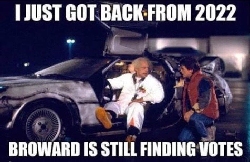 Knowing I write regularly on politics, as well as other things, I have recently been bombarded with calls, messages, and e-mails from acquaintances all over the world asking me about the Florida election recount. An old friend I know vacationing in southern Spain asks for daily updates. High School and College classmates from Ohio also ask me regularly, as are readers from throughout the Midwest, New England, and the South. I can't remember a time when so many people have been asking me about a single issue.
Knowing I write regularly on politics, as well as other things, I have recently been bombarded with calls, messages, and e-mails from acquaintances all over the world asking me about the Florida election recount. An old friend I know vacationing in southern Spain asks for daily updates. High School and College classmates from Ohio also ask me regularly, as are readers from throughout the Midwest, New England, and the South. I can't remember a time when so many people have been asking me about a single issue. Coming from the business world, I understand the importance of conducting a Project Review (aka, "Project Audit") whereby we make note of what went right and what went wrong. The intent is to pass these lessons on to others for the future. This is equally applicable to politics which is why I want to review the lessons I learned from the recent 2018 mid-term elections. This may seem a little dry, but it includes some important lessons for both parties to observe.
Coming from the business world, I understand the importance of conducting a Project Review (aka, "Project Audit") whereby we make note of what went right and what went wrong. The intent is to pass these lessons on to others for the future. This is equally applicable to politics which is why I want to review the lessons I learned from the recent 2018 mid-term elections. This may seem a little dry, but it includes some important lessons for both parties to observe.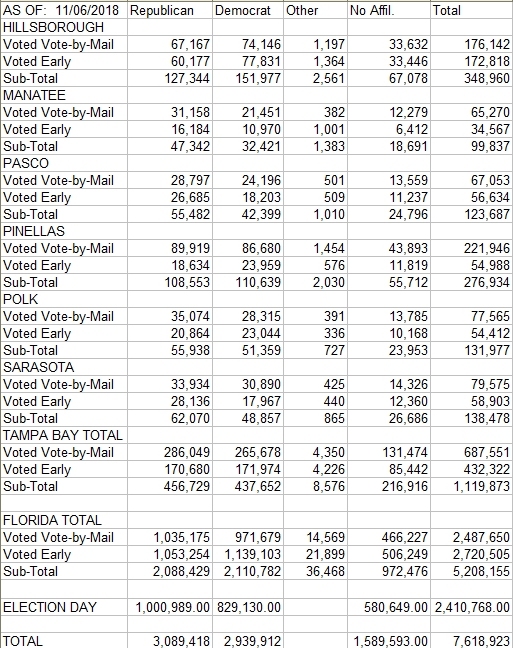
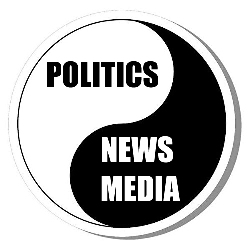 The 2018 mid-term elections was the largest campaign of its kind in history, both in terms of votes cast and campaign money spent, which was in the billions of dollars. Perhaps it is time to reflect on why this happened. We now live in a 24/7 news cycle. Whereas back in the 1960's we would read morning newspapers, watch evening news, and skim through weekly news magazines (e.g., Time, Newsweek, Life, etc.), news is now offered on a non-stop basis, not just on one television channel, but several, as well as the Internet. Forget reality TV and sports, news is now the #1 entertainment medium and there are millions of news junkies around to prove it.
The 2018 mid-term elections was the largest campaign of its kind in history, both in terms of votes cast and campaign money spent, which was in the billions of dollars. Perhaps it is time to reflect on why this happened. We now live in a 24/7 news cycle. Whereas back in the 1960's we would read morning newspapers, watch evening news, and skim through weekly news magazines (e.g., Time, Newsweek, Life, etc.), news is now offered on a non-stop basis, not just on one television channel, but several, as well as the Internet. Forget reality TV and sports, news is now the #1 entertainment medium and there are millions of news junkies around to prove it.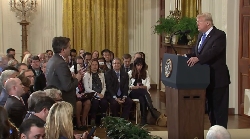 After clashing with President Trump during a
After clashing with President Trump during a  Tuesday, November 6, 2018, Election Night in the United States was the starting gun for the 2020 election cycle. On this day, the Democrats captured the House and the Republicans secured the Senate. Translation: the American public opted for gridlock for two years.
Tuesday, November 6, 2018, Election Night in the United States was the starting gun for the 2020 election cycle. On this day, the Democrats captured the House and the Republicans secured the Senate. Translation: the American public opted for gridlock for two years. It's showtime for the 2018 midterm elections, where polls and media contend a "Blue Tide" is going to sweep across the country and the Democrats will reclaim the House of Representatives. After all, the press insists, "the party in power historically loses the midterms." The only problem is the media has never met a president like Donald Trump, nor do they understand the country's sense of priorities, where the citizenry prefers peace and prosperity over turmoil.
It's showtime for the 2018 midterm elections, where polls and media contend a "Blue Tide" is going to sweep across the country and the Democrats will reclaim the House of Representatives. After all, the press insists, "the party in power historically loses the midterms." The only problem is the media has never met a president like Donald Trump, nor do they understand the country's sense of priorities, where the citizenry prefers peace and prosperity over turmoil.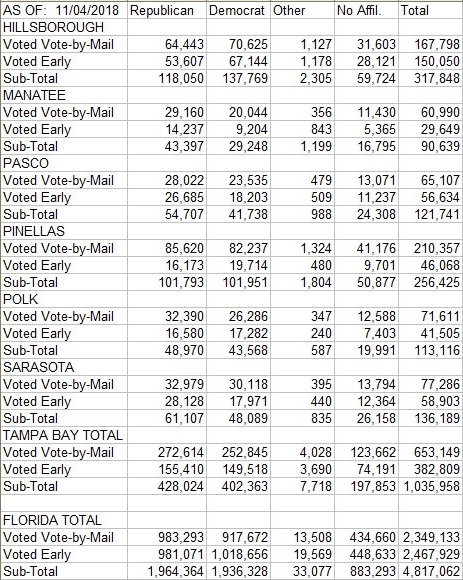
 Midterm elections are normally as exciting as watching grass grow. A handful of people usually show up to elect dog catchers and the like. Democrats tend to avoid it like the plague, failing to see the significance of it in comparison to a presidential election. However, in the Age of Trump and the Resistance, the 2018 midterm elections have been electrified and we may very well see some record voting numbers for such an election. This, of course, represents a bonanza for the news media who reaps the financial harvest by whipping the populace into a frenzy.
Midterm elections are normally as exciting as watching grass grow. A handful of people usually show up to elect dog catchers and the like. Democrats tend to avoid it like the plague, failing to see the significance of it in comparison to a presidential election. However, in the Age of Trump and the Resistance, the 2018 midterm elections have been electrified and we may very well see some record voting numbers for such an election. This, of course, represents a bonanza for the news media who reaps the financial harvest by whipping the populace into a frenzy.